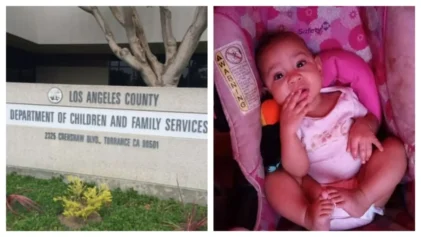In May of 2020, a top-producing loan officer for Fairway Independent Mortgage Company sent an email to a loan processor about a possible property purchase in Ensley, a majority-Black neighborhood in Birmingham, which said, “Ensley is the GHETTO. We don’t own a house there, I promise. LOL!”
The Fairway Mortgage processor responded, “‘ROFLOL,’ presumably meaning ‘rolling on the floor laughing out loud,’” according to a court document, which noted that the lender had accepted no loan applications in the Ensley area from 2018 to 2021.
No one at Fairway Mortgage is laughing now, after a four-year investigation by the Consumer Financial Protection Bureau and the U.S. Justice Department this week pushed the mortgage lender into an $8 million settlement to address its alleged discriminatory lending practices, including redlining of Black neighborhoods in and around Birmingham.
Redlining is an illegal, discriminatory practice by which lenders and other businesses make credit and other financial services out of reach for residents of certain areas based on race ethnicity, or national origin.
According to the complaint filed by the two federal agencies on Oct. 15, Madison, Wisconsin-based Fairway, which does business in Birmingham as MortgageBanc, operated retail loan offices in exclusively majority-white areas of metro Birmingham from 2015 to 2022. The company also obtained loan referrals from and directed its marketing to people and organizations in majority-white areas, ignoring most majority-Black neighborhoods.
As a result, only 3.7 percent of Fairway’s 10,247 mortgage loan applications reported to the federal government between 2018 and 2022 were for properties in majority-Black areas, compared to 12.2 percent for its peer lenders in Birmingham, the complaint said. And only 3.3 percent of 7,913 mortgage loans that Fairway actually made in the metro area were for properties in majority-Black neighborhoods, compared to 10.1 percent made by other mortgage lenders.
At the time, the Birmingham Metropolitan Statistical Area (MSA) included six counties in north central Alabama with a combined population of 1.1 million, composed of residents who were 62 percent white, 30 percent Black, 5 percent Hispanic and 3 percent of other races.
Such policies and practices by Fairway constitute redlining, as they were “intended to deny, and had the effect of denying, equal access to home loans to residents of majority-Black [at least 50 percent Black] and high-Black [at least 80 percent Black] residential areas and those seeking credit for properties located in those areas,” argued the two federal agencies, which found that Fairway had violated the federal Fair Housing Act, the Equal Credit Opportunity Act, and the Consumer Financial Protection Act.
The agencies argued that Fairway should have been well aware of its failure to adequately serve majority-Black areas, as since 2017 the company has used third-party vendors to help review its lending data to evaluate its redlining risk in majority-minority areas. Those annual reports on redlining risk “should have put Fairway on notice,” the feds argued, but the company “failed to take any meaningful actions directed at increasing its [loan] applications and originations in majority-Black areas” in metro Birmingham.
The complaint also noted that email exchanges between several white Fairway employees between 2018 and 2020 used derogatory language to refer to majority-Black areas in Birmingham, “indicating a culture consistent with discrimination, including by discouraging applications for credit for properties in these areas.”
Besides referring to Ensley and another majority-Black neighborhood, Tarrant, as “ghetto,” loan officers at Fairway referred to a male African-American loan applicant in a 2018 email chain as having “thug friends” and wrote that “[w]e don’t need him as a client. He is a liability waiting to happen.” The Black applicant withdrew his application.
The settlement announced on Tuesday requires Fairway to provide $8 million for a loan subsidy program to offer affordable home purchase, refinance and home improvement loans in Birmingham’s majority-Black neighborhoods, and to pay a $1.9 million civil penalty to the CFPB’s victims relief fund. It has not yet been approved by the U.S. District Court for the Northern District of Alabama.
The Birmingham settlement is the Justice Department’s 15th redlining settlement in three years as part of its Combating Redlining Initiative, which has now amassed more than $150 million in settlement agreements “for communities of color nationwide that have experienced lending discrimination,” including Houston, Memphis, Los Angeles and Philadelphia.
“This settlement … will help ensure that future generations of Americans inherit a legacy of home ownership that they too often have been denied,” said Attorney General Merrick Garland. “This case is a reminder that redlining is not a relic of the past.”
“That’s good news for those that are seeking to purchase a home or to fix up their homes in this area,” George McCall, 81, president of the Ensley Neighborhood Association, told Atlanta Black Star of the settlement.
“This area is not a ghetto, like they said. Our houses are not run-down or raggedy, but many home owners are seniors and they have had a hard time getting loans to make some needed improvements,” McCall said, adding, “I hope this will enable more young people to buy a home. They’re really having a hard time getting financed for anything.”
Eric Guster, an attorney and real estate developer who grew up in Ensley, and recently developed a $2.5 million retail center in nearby Five Points West, told Atlanta Black Star he hopes the settlement and loan subsidy program will lead to more home ownership in Birmingham’s majority-Black neighborhoods.
“When people start owning homes, they have more pride in them, they’re vested in their neighborhood, and that promotes community responsibility,” he said. “When you don’t have the influx of cash and investments, when people are locked out of ownership, it’s a faster way to decline and decay. And that’s what the mortgage company was essentially doing, assisting the decaying process.”
Fairway released a statement on Tuesday denying that it had engaged in redlining and noting that the federal lawsuit was filed a day after the settlement was reached. It called the complaint “inflammatory” and said it mischaracterizes Fairway’s actions “as willful and reckless, a claim that was mutually rejected by the parties prior to settlement.”
The company ranked No. 12 among the largest U.S. mortgage lenders in the first half of 2024, with $11.8 billion in home loan production, reported HousingWire. Fairway has been a top-five lender by application volume in the Birmingham area, according to the complaint.
“Fairway vigorously defended itself against the government agencies’ allegations and continues to deny that the Company engaged in any discriminatory behavior,” Fairway’s statement said. “Fairway also maintains strong disagreement with the government agencies’ legal and statistical approach to identifying potential discrimination. However, to resolve the matter and curb the further expenditure of resources, Fairway determined that a settlement with the Bureau and the DOJ would be the most appropriate solution.”
The company said the settlement “allows Fairway the opportunity to redirect financial resources to majority-Black neighborhoods via loan subsidies, consumer financial education, and community development. Fairway hopes that these efforts will further increase lending opportunities for those seeking to purchase properties in majority-Black census tracts of the Birmingham MSA.”


